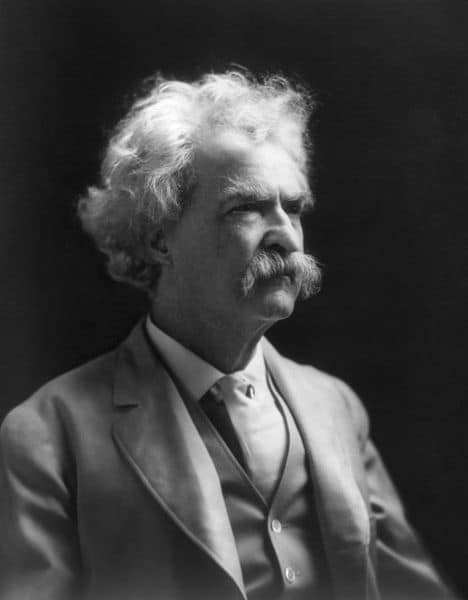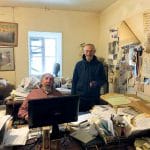There was a collective sigh of relief from American lectiophiles this week when the Mountain Messenger was saved from an untimely end. The Sierra Nevada small-town newspaper will keep the presses rolling after an 11th-hour reprieve from mothballs. Based out of Downieville, Calif., the paper’s demise appeared imminent when its longtime editor/publisher Don Russell decided to retire and, after a year on the market, no one had stepped up to acquire it.
The historic paper has been keeping area residents informed of the latest news since the Gold Rush era. The Mountain Messenger dates back to 1853. It was originally known as the Gibsonville Trumpet and was published in the former mining camp of Gibsonville in Sierra County. The paper was sold and then moved to La Porte and renamed the Mountain Messenger in 1864, just preceding the first Lincoln administration.
The paper’s close call made national headlines last week due to its storied history and ties to America’s first well-known national humorist, Mark Twain. He wrote for the paper under his real name Samuel Clemens, allegedly to elude police in Nevada who sought to arrest the famous author for the crime of accepting a challenge to a duel. Although Twain famously wrote many sardonic comments about newspapers, such as this one that is often attributed, but possibly apocryphal: “If you don’t read the newspaper, you’re uninformed. If you read the newspaper, you’re mis-informed.”
The man who saved the Mountain Messenger from shutting down is a widowed retiree who canceled an around-the-world trip to rescue California’s oldest weekly publication. Seventy-one year-old Carl Butz bought “The Mess” when Don Russell chose to finally retire at age 70 after working for three decades to keep the presses rolling.
The “Mountain Mess,” as it’s known to locals, is thought to be the oldest weekly publication in the state. That’s something to celebrate at a time when the newspaper business is said to be in a “crisis,” according to business media outlets. More than 1,800 local newspapers have gone the way of the dodo bird since 2004, as the rise of the internet turned eyeballs away from print and onto the handheld screen for news coverage. According to a report from the University of North Carolina, more than 500 rural papers have shuttered since 2004, leaving often poorer communities at risk of losing a local news source. Two hundred counties in the U.S. have no local paper now and the numbers are growing.
As a reporter for The Malibu Times, I have come to appreciate local news outlets such as this paper. You won’t find what we report about on the local television news. Newspapers such as ours are the thread that weaves small communities together. Malibu is a small, caring community. We’ve suffered many recent tragedies and we keep informed through local news outlets such as this one. This is how we help our neighbors find “free” stores after the fire to replenish immediate needs that were lost, learn about fire safety or where to sign up for CERT classes.
I love sharing the stories of so many Malibu people who do good things for others and for the community. We seem to cover a lot of these stories in The Malibu Times. People approach me every week to tell me they appreciate it, too. Where else could you find out about our local youngsters who start a charity or achieve an athletic milestone?
The other thing I like about local newspapers is accountability. Sure, we make mistakes sometimes, but unlike on the internet we face our constituents in person as we make our local rounds.
I think about Arnold and Karen York who have owned and published the paper for 32 years and how I’m sure they too are looking forward to a well-deserved retirement. Many well-heeled Malibu residents have approached me to express their hopes that the paper falls into the hands of a good steward. Is there a Carl Butz for The Malibu Times? As Mark Twain once noted, “News is history in its first and best form, and history is the pale and tranquil reflection of it.”


